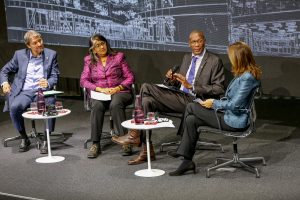
More than 20 professors, researchers and students work directly on SDG 10. Their work includes academic publications, academic and executive education, and engagement in external initiatives. We also offer an Executive Master in Development Policies and Practices, as well as academic Masters and PhD programmes and courses on International Economics.


International Economic Association Fellowship Awards 2021

Gobal Economic Prospects Report – Slowing Growth, Rising Risks

New Publication: Remittances and morality

Migration and development

High-Skilled Immigration Policies in Germany and Austria

Book launch: International Migration Law

Interview with Prof. Thomas Faist on Migration and the Public Sphere

Catalyst or Hindrance? The link between trade policy & sustainable development

Book Launch: States, Markets, and Foreign Aid

Vaccine equity: How to Ensure Fair Distribution

AHCD policy seminar: Planning Europe’s future: the making of the Recovery Plan
Discover more SDGs
View moreGoal 10 calls for “reducing inequalities in income as well as those based on age, sex, disability, race, ethnicity, origin, religion or economic or other status within a country. The Goal also addresses inequalities among countries, including those related to representation, migration and development assistance” as put by the UN Sustainable Development Knowledge Platform. Read more about Goal 10